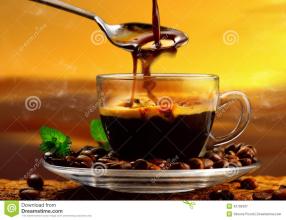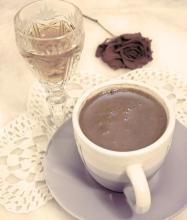Aromatic, long finish Puerto Rico Lares Yauco coffee flavor on the palate
In Spanish, Puerto Rico means "port of wealth". The history of coffee in Puerto Rico dates back to 1736, when coffee seedlings were brought into the country by early Spanish settlers. In the 18th world, sugar cane was the main economic crop, so little attention was paid to it. At the beginning of the nineteenth century, the French began to emigrate from the Corsica island in the Mediterranean to Puerto Rico because of European politics. Crowded by the Spaniards, many French settled in Yaoke Yauco in southwestern Puerto Rico. Yaoke's geographical environment is more hilly, so the French decided to grow coffee. After half a century of hard work, the quality has been affirmed by the market, which has established the position of Yauco Selecto coffee in the market in the future.
In the 1860s, the coffee produced in the Yaoke area of Puerto Rico won the reputation of high-end coffee and spread all over Europe. At that time, emperors and queens of various countries regarded it as the best coffee, and the kings and queens of many countries and European popes even recognized only Yaoke coffee when they chose coffee. And designated for the Vatican to drink the royal coffee. Island Coffee-Puerto Rico
Puerto Rico's coffee beans are carefully planted, pure, fragrant and heavy, of which the best coffee is Yauco Selecto, which means "Selecto". Yaocote Coffee is grown only on three farms in the southwest of the island, San Pedro, Caracolillo and La Juanita. It is a truly high-quality coffee with a strong flavor and a long aftertaste. The hills of southwestern Puerto Rico have a mild climate, a long period of plant maturity (from October to February) and high-quality clay. People here have been using an eco-friendly, intensive planting method, picking only fully ripe coffee beans and then flushing them in a drum device for 48 hours. Yaocote selected coffee beans are preserved with sheepskin before sale and will not be removed until order and delivery to ensure the best freshness of the coffee. Relevant U.S. government employees, such as FDA and USEA, will also be present at the transaction, and they are here to monitor producers' compliance with federal regulations. There are also professional reviewers who randomly take one bag of coffee from every 50 bags as samples and use international gauges to identify the quality of coffee beans, all in order to ensure the quality of the real Yaocote selected coffee.
Island Coffee-Puerto Rico
And Jaime Fortuno, the president of Escoki's Escogido Yauco agency, pays silent attention to all this work every year, even the smallest details. Fortuno is an investment banker who graduated from Harvard Business School. He was determined to seize every opportunity to open up a market for top coffee in Puerto Rico. He expects a maximum annual output of 3000 bags of 45kg each, less than 1 per cent of the island's total coffee production.
This is why Puerto Rico and Puerto Rico Yukot select Yauco Selecto, which is the manor bean, the joint brand of Puerto Rico San Pedro, Caracolillo and La Juanita.
Island Coffee-Puerto Rico
In fact, any kind of coffee will be given a unique flavor because of its origin, just like different music styles will always give you different feelings. Puerto Rico Yaoke coffee has the characteristics of boutique coffee, its acidity is very stable, full of particles, complete flavor, rich aroma. The reason why Yaocote chose coffee beans to be better than other producing areas on the island is that it is grown in high-altitude mountain areas, so it grows slowly and has rich fruit flavor, and it uses ancient coffee tree species, which have a unique flavor despite less yield. this is incomparable to some new tree species. Due to the abundant rainfall, rich soil and high-altitude microclimate zone, Yaoke coffee has all the qualities that gourmet coffee should have. Of course, Yaoke coffee is inseparable from the hard work of those coffee workers, who manage the whole process from planting coffee seedlings to post-harvest treatment.

Important Notice :
前街咖啡 FrontStreet Coffee has moved to new addredd:
FrontStreet Coffee Address: 315,Donghua East Road,GuangZhou
Tel:020 38364473
- Prev

Introduction to the delicious and unique Coffee Flavor and Taste in Xidamasha Chiso, Ethiopia
Ethiopia is recognized as the birthplace of coffee and the birthplace of all kinds of coffee we taste today. it plays an important role in the history of coffee development. With respect and admiration for the birthplace of coffee and the long-standing inheritance of coffee culture, Starbucks solemnly launched Ethiopian coffee with a unique taste in stores across the country from January 6 to 12.
- Next

Fragrant but not strong, slightly fruity Yunnan Tieka coffee flavor taste manor characteristics of varieties
The western and southern parts of Yunnan Province are located between the 15th latitude and the Tropic of Cancer. Most areas are 1000-2000 meters above sea level. The topography is dominated by mountains and slopes. Here, the land is fertile, the sunshine is sufficient, the rainfall is abundant, and the temperature difference between day and night is large. The unique natural conditions form the special taste of Yunnan small-grain coffee, which is rich but not bitter, fragrant but not strong, slightly fruity. Pu'er in the south and west of Yunnan
Related
- Detailed explanation of Jadeite planting Land in Panamanian Jadeite Manor introduction to the grading system of Jadeite competitive bidding, Red bid, Green bid and Rose Summer
- Story of Coffee planting in Brenka region of Costa Rica Stonehenge Manor anaerobic heavy honey treatment of flavor mouth
- What's on the barrel of Blue Mountain Coffee beans?
- Can American coffee also pull flowers? How to use hot American style to pull out a good-looking pattern?
- Can you make a cold extract with coffee beans? What is the right proportion for cold-extracted coffee formula?
- Indonesian PWN Gold Mandrine Coffee Origin Features Flavor How to Chong? Mandolin coffee is American.
- A brief introduction to the flavor characteristics of Brazilian yellow bourbon coffee beans
- What is the effect of different water quality on the flavor of cold-extracted coffee? What kind of water is best for brewing coffee?
- Why do you think of Rose Summer whenever you mention Panamanian coffee?
- Introduction to the characteristics of authentic blue mountain coffee bean producing areas? What is the CIB Coffee Authority in Jamaica?

